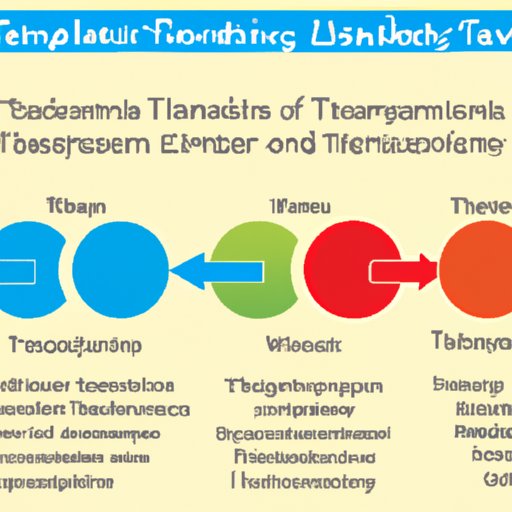Introduction
Task leadership is a type of leadership style focused on achieving the goals of a team or organization by assigning tasks to individuals and providing support and guidance as needed. It is a key component of any successful team, as it helps ensure that everyone is working together towards a common goal. Task leadership is not about being the boss, but rather about helping to create an environment where everyone can work together effectively.

Exploring Different Styles of Task Leadership
There are several different styles of task leadership, each with its own strengths and weaknesses. The three most common styles are autocratic, democratic, and laissez-faire.
Autocratic Style
The autocratic style of task leadership is characterized by one individual taking complete control of all decisions and tasks. This style is often seen in military organizations, where the leader has absolute authority over their subordinates. While this style can be effective in certain situations, it can also lead to resentment and decreased morale among team members.
Democratic Style
The democratic style of task leadership involves more collaboration and input from team members. The leader still makes the final decision, but they take into account the opinions of the team before doing so. This style encourages team members to take ownership of their tasks and fosters a sense of camaraderie. It also allows for more creative solutions to be explored when faced with difficult problems.
Laissez-Faire Style
The laissez-faire style of task leadership is the least directive of the three. This style is characterized by the leader giving the team freedom to make their own decisions and manage tasks on their own. This style encourages risk-taking and creativity, but it can also lead to confusion and lack of direction if not managed properly.

Analyzing the Challenges of Task Leadership
Task leadership comes with its own set of challenges. These include time management, communication, and delegation.
Time Management
Time management is critical for task leaders, as they must ensure that tasks are completed on time and that team members are not overwhelmed. This requires careful planning and organization, as well as the ability to adjust plans when necessary.
Communication
Effective communication is another important challenge for task leaders. They must be able to clearly communicate expectations, provide feedback, and motivate team members. Without clear communication, tasks can be misunderstood or forgotten, leading to delays or even failure.
Delegation
Task leaders must also be adept at delegation. This means assigning tasks to the right people and providing them with the resources and support they need to complete their tasks. Delegating tasks incorrectly can lead to frustration and wasted time.
Investigating the Role of Task Leadership in Teams
Task leadership plays an important role in teams, as it can foster collaboration, facilitate problem solving, and encourage innovation.
Fostering Collaboration
Task leadership helps to foster collaboration between team members. By assigning tasks to the right people and providing guidance and support, task leaders can help team members work together more effectively. This encourages open communication and the sharing of ideas, which can lead to better results.
Facilitating Problem Solving
Task leaders can also help teams come up with creative solutions to difficult problems. By encouraging open discussion and brainstorming, task leaders can help team members explore different approaches and find the best solution.
Encouraging Innovation
Task leadership can also promote innovation within teams. By giving team members the freedom to think outside the box and take risks, task leaders can help teams come up with innovative solutions to challenging problems.
Conclusion
Task leadership is a critical component of any successful team. It involves assigning tasks to the right people and providing guidance and support as needed. There are several different styles of task leadership, each with its own strengths and weaknesses. Additionally, there are several challenges associated with task leadership, including time management, communication, and delegation. Ultimately, task leadership can help foster collaboration, facilitate problem solving, and encourage innovation within teams.
(Note: Is this article not meeting your expectations? Do you have knowledge or insights to share? Unlock new opportunities and expand your reach by joining our authors team. Click Registration to join us and share your expertise with our readers.)
